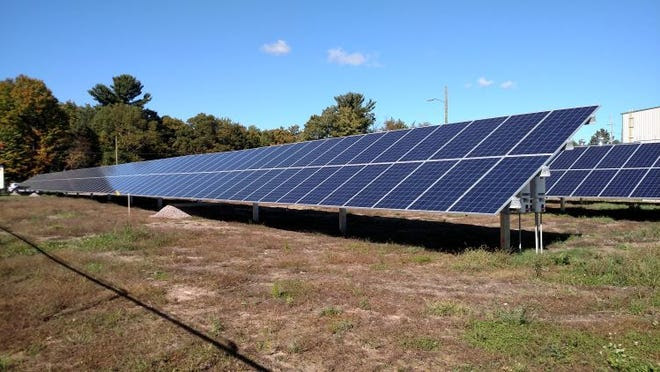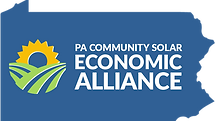
A group of Pennsylvania lawmakers in mid-November renewed efforts to develop a community solar program in the Keystone State.
State Reps. Rob Matzie, D-16, Harmony Township, and Peter Schweyer, D-134, Lehigh County, introduced House Bill 1842, or the Community Solar Act, with the support of two dozen bipartisan co-sponsors.
The Community Solar Act would add Pennsylvania to a list of at least 22 other states with laws explicitly authorizing and/or regulating community solar development. While some states have enacted laws sanctioning, incentivizing or funding community solar projects, others have mandated deployment targets.
Pennsylvanians who rent, live in apartment/multi-tenant buildings or have roofs unable to host solar panels are currently shut out of solar adoption. Others face financial barriers related to the high upfront costs associated with home photovoltaic, or PV, systems.
Community solar, according to the bill’s sponsors, helps expand economic access to energy alternatives, fosters job growth and investment and promotes electric grid resilience.
Community solar projects are often privately funded offsite facilities that generate electricity for many properties. Customers subscribe to a portion of the energy generated by a solar array in their utility’s footprint and earn credits to lower their monthly electric bill. The solar systems can be built on brownfields, reclaimed mining lands, warehouse roofs, parking lots, farmland and more.
Pennsylvania’s proposed Community Solar Act would allow for the creation, financing, accessibility and operation of third-party-owned community solar generating facilities, “but not on the backs of ratepayers who choose not to opt in.” The bill calls for a regulatory framework and prevailing construction wage for building community solar facilities.
Similar bills that have traveled through the General Assembly in the past have elicited debates about grid maintenance, costs to utility companies and other concerns.
“This concept is something that most agree is beneficial,” said Schweyer. “We know that solar energy reduces the load on the grid while lowering electric bills. But many residents who would like to enjoy the benefits of solar can’t do it on an individual basis for a myriad of reasons. So, the idea is to provide a mechanism for targeted solar projects in communities that want them. People subscribe, save money, and the grid benefits. What’s not to like?”
The legislation’s backers cite a 2020 Penn State study estimating the state’s 235 planned solar facilities could generate “a one-time, temporary $1.8 billion increase in economic output and 11,631 jobs.”
Roughly 40 states had at least one community solar project as of late 2021, according to the National Renewable Energy Laboratory, but nearly three-quarters of the market was concentrated in four states – Minnesota, New York, Massachusetts and Florida.
Solar generation is among the nation’s fastest-growing electricity sources, and although solar PV installations have risen in Pennsylvania, solar is responsible for less than 1% of the state’s net electricity generation.
“This legislation will finally legalize community solar and is good policy for consumers who will see bill savings; landowners who will see development and investment on their property; and workers who will see good paying jobs in the state as these projects come to fruition,” said Matthew Hargarten, vice president of campaigns for the Coalition For Community Solar Access.
A 2022 PennEnvironment Research & Policy Center report found that Pennsylvania ranked 46th in the U.S. for percent growth in solar power generation in the past decade. Still, recent federal investment aimed at boosting solar adoption is expected to drive some state and local growth.
In Beaver County, a nonprofit partnership called the Rural Innovation through Solar Empowerment, or RISE, project received $100,000 from the U.S. Department of Energy in July to help guide the transition to solar with a focus on historically underserved areas.
The partnership will identify prospective energy projects in rural Beaver County, offering technical support from feasibility to finance with the goal of placing at least 10 projects out to bid. RISE leaders said Beaver County is “far behind in solar adoption,” with 8.9 megawatts of installed solar capacity.



Leave a Reply